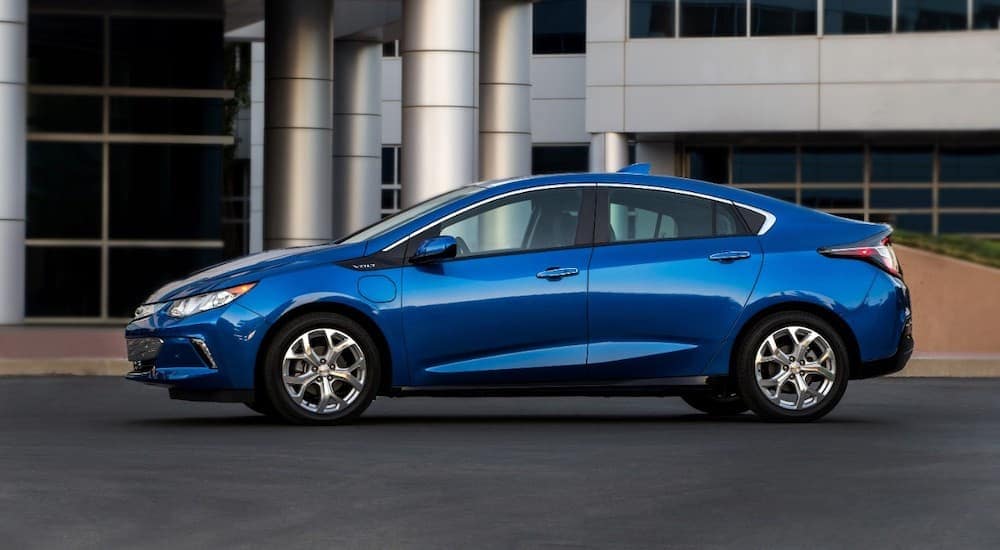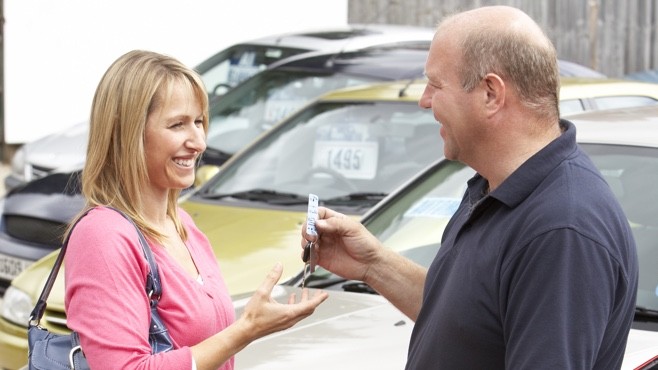How to Get a Good Deal on a Used Car
Depreciation is Depressing
Why should you buy a used car? A new car will depreciate about 10% the moment it leaves the lot and another 20% within its first year. After three years, the average car is worth about 60% of what it was when new. That might be depressing news for the original owner, but it represents a screaming deal for the prudent used-car buyer.
A model that is one to three years older will likely still be under the manufacturer’s warranty, and unless it has been abused, it is likely to offer many more years of good service. Also, consider that the used car marketplace is huge—about 43 million used vehicles change hands each year, dwarfing the 17 million in new car sales.
Research First
So, how do you make sure you get a good deal? “Do everything you can before physically going to buy the car,” said Philip Reed, a senior consumer advice editor at automotive review site Edmunds. That means researching what make and model you are interested in and how much they sell for in your area. By researching specific vehicles that have the features and mileage you are looking for, you introduce competition to the car-buying process. A seller might not match the lowest price you find, but it cannot hurt to ask.
Edmunds is a good resource for auto shoppers. It, along with Kelley Blue Book and National Automotive Dealers Association, track new and used car purchases to provide granular pricing information. “We collect tens of thousands of transactions per week from wholesale auctions, dealers both large and small, vehicle registration data, listing data and other sources,” said Alec Gutierrez, a senior analyst for Kelley Blue Book, of his organization’s process. “This data is then cleansed, normalized and run through a statistical modeling process.”
Check It Out
Once you have determined what you want to buy, and what they sell for, it is time to check out the car, take it for a test drive and make sure everything the seller says about it is true. Get the vehicle history report (Carfax and AutoCheck are two popular choices) to confirm the odometer reading, ownership history and reports of accidents and flood damage

Buying a used car
There are steps you can take to help you avoid buying a car that’s been badly damaged, stolen or illegally altered. They’ll also simply help you get a car that doesn’t break down.
If you’re buying from a trader (a business that sells cars) you should:
look for an established firm with a good reputation
look for a trade association sign (for example, the Retail Motor Industry Federation or the Scottish Motor Trade Association) or a sign that says they follow The Motor Ombudsman’s code of practice – this means you can act through a trade association if something goes wrong
look for a trader whose cars have been inspected by an independent engineer or motoring organisation
Buying from an auction
Auctions are probably the riskiest way of buying a used car. You probably won’t have the legal protection that you have if you buy through a trader (for example, the right to returns and refunds).
Check a car’s history
Doing some simple checks will reduce your chances of buying a car that’s being sold illegally or has had major repairs. You can also find out if the current owner still owes money on the car.
Ask the seller for the car’s:
registration number (on the number plate)
MOT test number
mileage
make and model

Things to Look for in a Used Car Dealership
Yes, we certainly have a bit of a bias when it comes to used car dealerships, but our years in this business have taught us some things. First, among them is the fact that not all used car dealers are equal. We’d like to tell you that every used car dealership is just as good as the next, that you can find used cars for sale anywhere and rest easy knowing you found the best option.
In reality, however, that’s just not the case – some dealers have subpar inventories or use tactics to make a sale that is less than forthright. If you need to find the best used cars for sale, but you’re not sure how to pick the right dealership, then you should keep these things in mind. No post like this can be totally comprehensive, but if you check all of these boxes, then there’s a good chance you’re at a dealership that cares about you and puts your needs first
Look for a Diverse Inventory
Inventory might not be everything when you’re looking for used cars for sale, but it is definitely important. Think of it this way: with a brand new car, you can choose packages and options to customize a vehicle, so there are a lot of ways to make changes. With used cars for sale, you really can’t make those kinds of choices – your options come with the variety of models that are available. And that variety at any particular dealership comes down to the size of their inventory; larger inventory means more options for you.
Look for a Convenient Website
This might seem a little strange, but it really is important. When shopping for used cars for sale, pay attention to the website of any dealership you consider. A good website will let you sit at home, where you’re comfortable, and peruse their inventory so you can start shopping for your next car before you visit them.
Look for Special Offers and Programs
One of the main reasons to choose used cars for sale over brand new models is to save some money – sometimes a lot of money. Good used car dealerships often have specials and programs going on to help you save even more money, or to put more value into the vehicle you choose. For example, a lot of dealerships will have sales and incentives going on around the holidays, but you might be able to find additional special offers any time of year.

Tips for Buying a Used Car
Buying a used car can save you lots of cash compared to a brand new. Whether you’re after a cheap runaround or a dream machine you’ve lots of choice on the second-hand market.
But with murky histories and hard-nosed salesmen, it can be a minefield. This guide is filled with top tips and checklists (we’ve created printable versions so you can bring them with you) to minimise the chance of any nasty surprises.
Year old cars are MUCH cheaper than new cars
So picking a year-old model will dramatically slash the upfront cost. There are exceptions if you’re picking a plush model. Brands that hold their value best tend to include Mercedes and Porsche – so you won’t see too many year old luxury car bargains out there.
Revealed: The cheapest cars to run
To save you time and energy trying to work this out, car experts have already done this research. You can compare running costs of different models, including the ones you’re looking to buy, on several sites, including Parkers and What Car?
But, follow these rules to home in on the cheapest cars:
Smaller engines can be cheaper. The choice of a 1.0-litre or a 2.0-litre engine isn’t just about pure horsepower. A large engine will usually burn more fuel than a smaller one. So engine size is a vital consideration if fuel economy is an important factor in your decision.
Of course, this depends on how you use the car. A small engine is most efficient when it’s used as intended, such as to pootle around town. If a small engine is used a high speed, it’ll need to work much harder to keep the car moving – burning more fuel.
Buying A Used Car Checklist & Tips
In the market for a new vehicle? Then why not buy a second hand car. It makes sense considering your budget. It makes sense considering your needs. And it makes sense to buy a second hand car from a dealer.
Sure. You may find a slightly better price from a private seller. But you’re really rolling the dice. With private sellers, there’s no statutory warranty when buying a used vehicle. Drive away and five minutes later the wheels fall off? You’re out of luck. And out of options.
In NSW, there’s a dealer guarantee on all used vehicles (excluding motorcycles) less than 10 years old and driven less than 160,00km. You’re covered for 5,000km or three months after the purchase. Whichever comes first. With private sales, a clear title of the vehicle isn’t guaranteed either. So any faults found won’t be covered by Fair Trading. And you’re stuck with no legal backup.
WHAT SHOULD I DO BEFORE BUYING A USED CAR?
You’ve been visiting the local dealerships and strolling the used car lots. You spend time looking at all the different types of cars, from full size family cars to pickup trucks and crossover SUVs. Then finally, something catches your eye.
Engine Check
When taking the used car for a test drive, you’ll want to make sure that the engine runs smoothly (and quietly) when driving and when idling. Check the oil dipstick too. You’ll want to see nice, honey-coloured oil. Unless it’s a diesel, where black oil is normal. Ask to see the service book to confirm that the car has been serviced regularly.